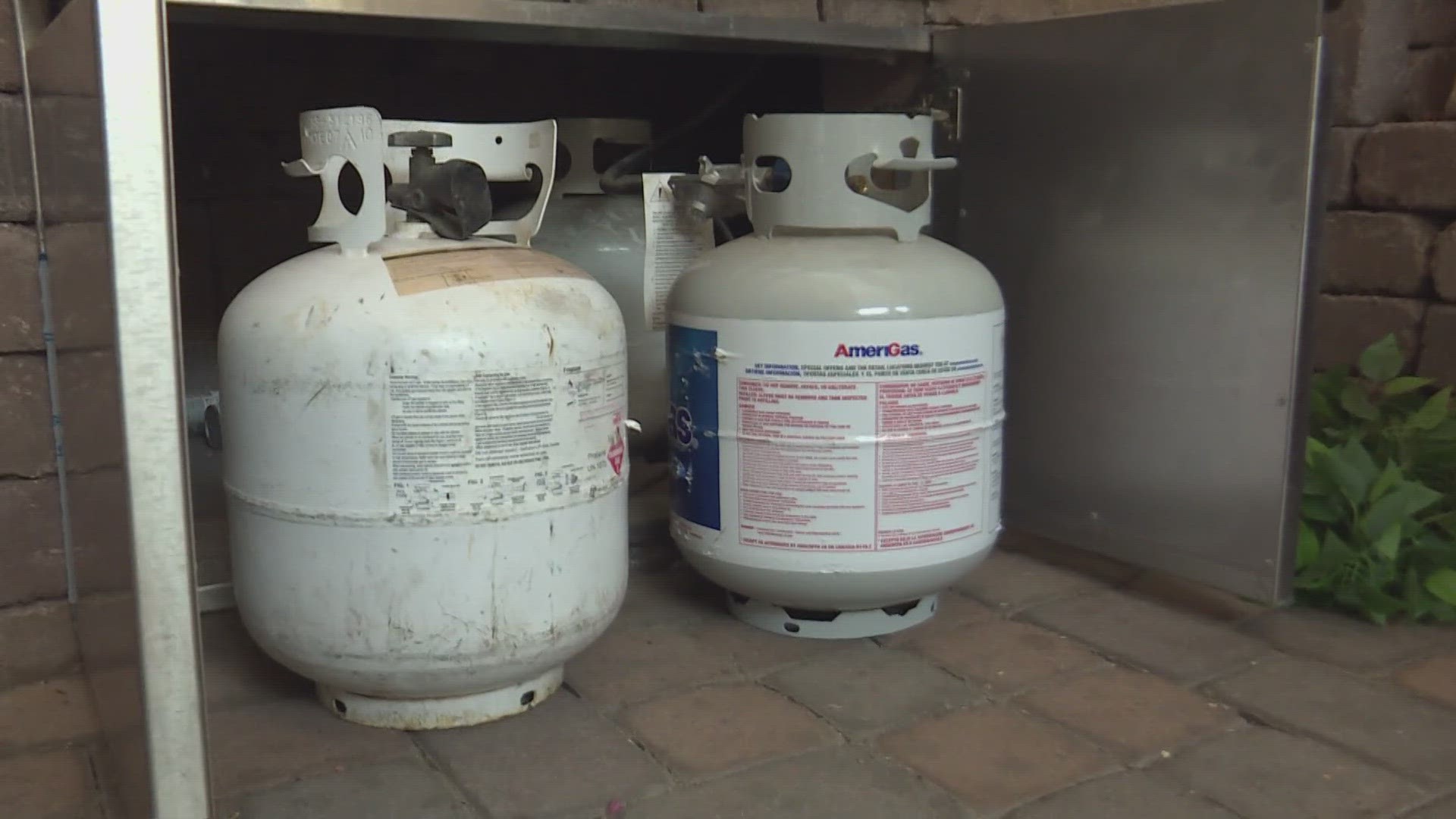PHOENIX — A propane storage facility caught fire Thursday in Phoenix, launching several propane tanks into the air and requiring a four-alarm response from Phoenix Fire Department.
The massive fire broke on a 119-degree day in the Valley of the Sun.
Propane company AmeriGas recommends the tanks "should never be stored in or subject to temperatures above 120°F."
Like the tanks at the site of the fire, propane tanks sit in Arizona backyards every day.
>> VERSIÓN EN ESPAÑOL: 6 medidas de seguridad con tanques propano que los arizonenses deben saber
As for how concerned people in Arizona should be about their backyard barbeques using propane tanks, experts said not to be too concerned.
“If they're designed and constructed adequately and meet the ANSI or ASTM standards for that type of appliance, they really shouldn't be overly concerned,” Stan Jaworski, a mechanical engineer and expert with Robson Forensic.
Jaworski said the tanks have safety measures to help, like a pressure relief valve, which will release propane between 110 and 130 degrees Fahrenheit.
That will allow propane to weep from the tank when it’s hot.
“A little bit just weeping out of that valve – the breeze is going to take it away; mother nature is going to do its thing,” Jaworski said.
Jaworski and Richard Meier, principal investigators at Meier Fire Investigation, said keeping propane from ignition sources is important.
“Keep them away from your air conditioners, pool heaters, whatever else you got outside that might cause a spark, have a flame,” Meier said.
It’s also recommended to keep propane tanks stored out of the sun, and if in an outdoor kitchen, make sure it’s ventilated.
Both experts also add to double-check that tanks are up to date, and if unsure, the best thing to do is exchange it.
The current standards require propane tanks used for things like grills to have both a pressure relief valve and an overfill protection device.
“What that does is it leaves 20% of the tank empty at the top, or somewhere in the tank, it's at the top of the because the vapor is lighter than the liquid. That's called "headspace," and it gives the liquid somewhere to expand to,” Jaworski said.
The experts also note that propane has a smell that most people can recognize.
“When you're lighting your grill, you know, open the lid, sniff, make sure it's not full of propane before you throw the match in or hit the starter button,” Meier said.
Up to Speed
Catch up on the latest news and stories on the 12News YouTube channel. Subscribe today.

